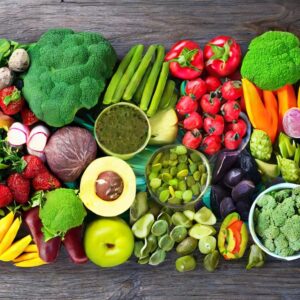Weight loss is a challenging journey, and with so much information available, it can be hard to separate fact from fiction. Let’s take a look at 20 common weight loss myths and the truth behind them.
 Myth 1: You can lose weight quickly by following a fad diet.
Myth 1: You can lose weight quickly by following a fad diet.
Fact: Fad diets are not sustainable and may even be dangerous for your health. Sustainable weight loss requires a balanced diet and regular exercise over time.
Myth 2: You need to eat very little to lose weight.
Fact: Severely restricting your caloric intake can actually slow down your metabolism, making it harder to lose weight in the long run. A balanced diet that provides enough nutrients is necessary for healthy weight loss.
Myth 3: You should avoid carbohydrates to lose weight.
Fact: Carbohydrates are an essential part of a healthy diet, providing energy for physical activity and brain function. The key is to choose complex carbohydrates that are high in fiber, such as whole grains and vegetables.
Myth 4: You can spot-reduce fat from certain areas of your body.
Fact: There is no such thing as spot reduction. Fat loss occurs throughout the body, not just in one specific area.
Myth 5: Eating at night will make you gain weight.
Fact: Weight gain is determined by the total number of calories consumed over the course of a day, not the time of day at which they are consumed.
Myth 6: You should skip meals to lose weight.
Fact: Skipping meals can lead to overeating later in the day and may cause your metabolism to slow down, making it harder to lose weight in the long run.
Myth 7: All calories are created equal.
Fact: The type of food you eat can have a big impact on your weight loss efforts. For example, foods that are high in protein can help you feel fuller longer, while foods that are high in sugar and refined carbohydrates can cause spikes in blood sugar and cravings.
Myth 8: You can’t eat your favorite foods while trying to lose weight.
Fact: You can still enjoy your favorite foods in moderation while trying to lose weight. The key is to practice portion control and balance your diet with healthy, nutrient-rich foods.
 Myth 9: Exercise is not necessary for weight loss.
Myth 9: Exercise is not necessary for weight loss.
Fact: While it is possible to lose weight without exercise, physical activity is an important part of a healthy weight loss plan. Exercise can help you burn calories, build muscle, and improve overall health.
Myth 10: Weight loss is a linear process.
Fact: Weight loss can be a slow and inconsistent process. It’s important to be patient and persistent, and to focus on making sustainable lifestyle changes rather than quick fixes.
Myth 11: You have to completely eliminate fat from your diet to lose weight.
Fact: Fat is an important nutrient that helps you feel full and satisfied. The key is to choose healthy fats, such as those found in nuts, seeds, and avocados, and to consume them in moderation.
Myth 12: Drinking lots of water can help you lose weight.
Fact: While staying hydrated is important for overall health, drinking water alone is not a guaranteed way to lose weight. However, drinking water before meals may help you feel fuller and eat less.
Myth 13: Supplements and detoxes can help you lose weight quickly.
Fact: There is no magic pill or quick fix for weight loss. Many supplements and detoxes are not regulated by the FDA and can be dangerous for your health.
Myth 14: You can’t eat out and still lose weight.
Fact: You can eat out and still make healthy choices. Look for menu items that are grilled or baked instead of fried, and choose sauces and dressings on the side.
Myth 15: Eating more frequent, smaller meals throughout the day can boost your metabolism.
Fact: While some people may find that eating smaller, more frequent meals works for them, there is no scientific evidence to suggest that it boosts metabolism or leads to more weight loss than eating larger, less frequent meals.
Myth 16: You should only focus on cardio for weight loss.
Fact: While cardio is great for burning calories and improving cardiovascular health, strength training is also important for building muscle and boosting metabolism.
 Myth 17: You can’t eat carbs and still lose weight.
Myth 17: You can’t eat carbs and still lose weight.
Fact: Carbs are an important part of a healthy diet and can be included in a weight loss plan. The key is to choose complex carbs that are high in fiber and low in sugar.
Myth 18: You have to eat breakfast to lose weight.
Fact: While some people find that eating breakfast helps them stay full and satisfied throughout the day, others may prefer to skip it. The important thing is to find a meal pattern that works for you and helps you meet your weight loss goals.
Myth 19: Weight loss is all about willpower.
Fact: Weight loss is a complex process that involves many factors, including genetics, metabolism, and environment. While willpower can be helpful, it is not the only factor that determines success.
Myth 20: Once you lose weight, you can go back to your old habits.
Fact: Sustainable weight loss requires making permanent lifestyle changes. It’s important to continue healthy eating habits and regular exercise even after reaching your goal weight.